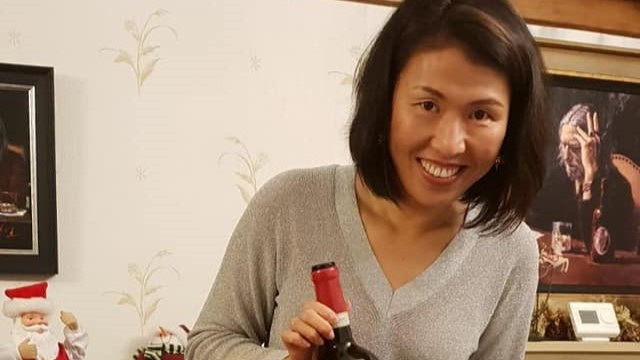
East Meets West is celebrating its twentieth anniversary so I got in touch with founder Shirley Tan, who started the company in 2003, left in 2012 and still keeps a foot in China’s wine scene as a consultant for Decanter in the UK.
Tan talked about the wine scene when she started in 1990s with LVMH, about her decision to go out on her own with EMW (“I was 29, young, dynamic, naive and had no fear at that time”), the key challenges she faced over the years (“We had an amazing portfolio but sales of wine and Champagne were very slow”), how Edouard Duval and Gregory Bielot came on board (they all first met a restaurant called ‘A Future Perfect’), and her current view of the market (“Chinese wine consumers are getting a lot more mature and sensible”).
Check it out below. And check out lots of other Q&8 at this link.
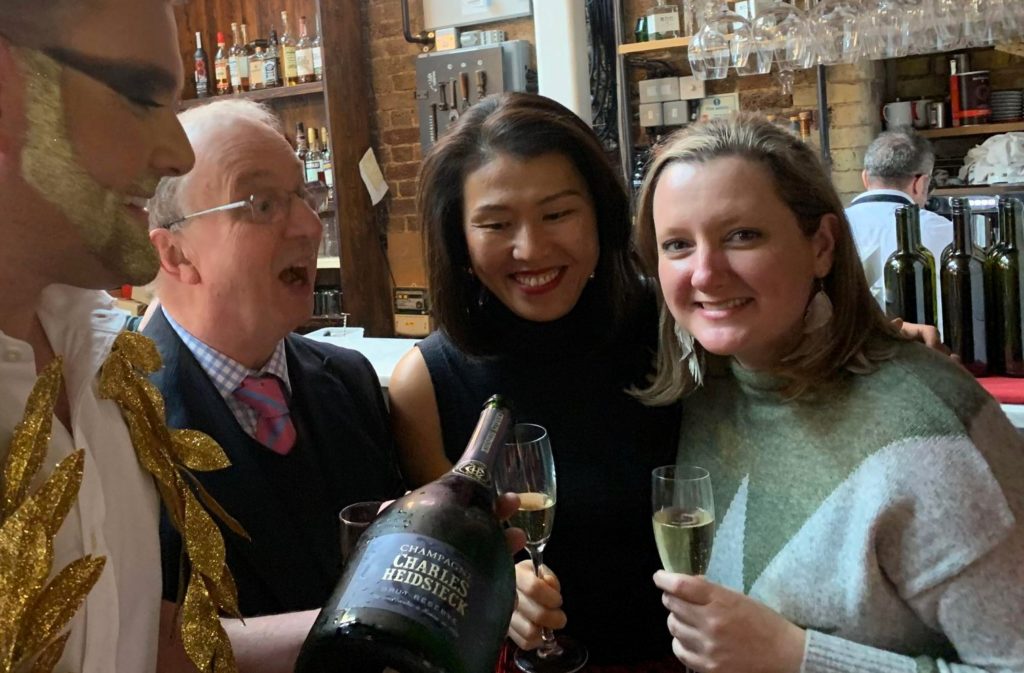
1 Grape Wall: What got you involved in wine as a profession?
Shirley Tan: I was looking for a job after graduating from university and the China office for LVMH Wines & Spirits was recruiting at a Beijing talent fair. I knew nothing about wine back then, but I was attracted by the job description and the people, so I went for an interview and they hired me on the spot.
2 What was the wine market like for a newcomer in those days? What brands were you handling in China?
The joint venture for LVMH Wines & Spirits was mainly focused on spirits in the 1990s, with a limited wine portfolio. But after I joined, they introduced a few of their key wine brands, such as Veuve Clicquot, Cape Mentelle, Cloudy Bay and Chateau d’Yquem.
Other brands such as Marques de Riscal, E. Guigal, Mouton Rothschild and Casa Lapostolle were also imported by them.
We had an amazing portfolio but sales of wine and Champagne were very slow. The joint venture was not profitable, so in the early noughties, the management decided to merge the sales force of Moet Chandon and Veuve Clicquot.
I had become so passionate about Veuve Clicquot and did not want to sell Moet Chandon, so I became surplus to requirements.
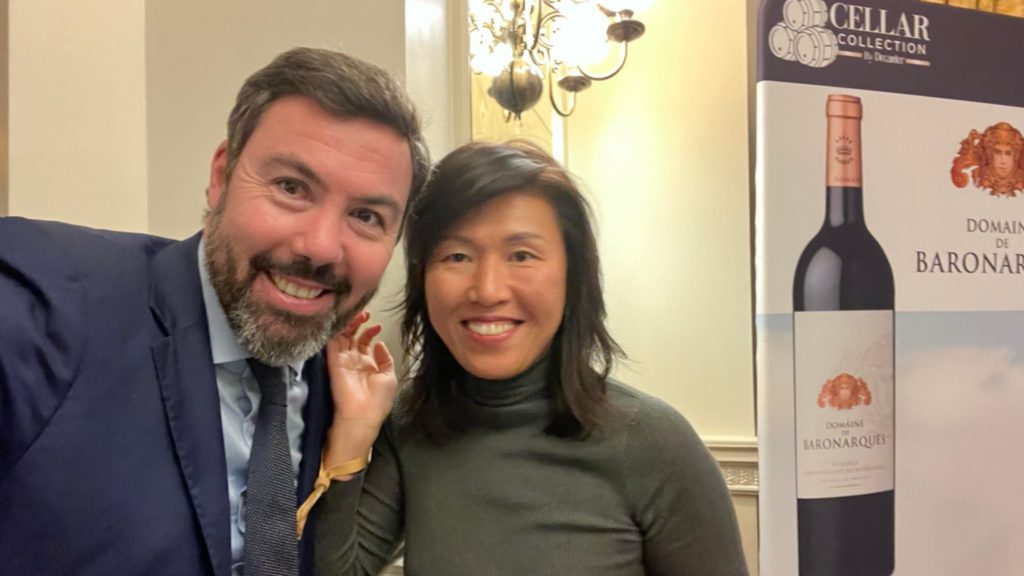
3 You started East Meets West in 2003. What gave you the confidence to go out on your own, especially as the wine market was (and is) quite risky?
After leaving LVMH, I worked for one year at the Summergate Shanghai office, as their on-trade sales manager for East China. There were only a handful of importers back then, each having an impressive portfolio, but they were full of big commercial brands.
The on-trade market of East China was booming. Hotels and restaurants were looking for something different for their wine lists. I was inspired to try and develop a distribution business focusing on niche, boutique and family-owned wineries.
I was 29, young, dynamic, naive and had no fear at that time, believing I had enough knowledge and contacts. I was also confident if East meets West failed, I could easily find another job. I really did not think too much about risk and growth at that time.
4 As you noted, China already had some major distributors by 2003, such as Montrose, ASC, Aussino and Summergate. What was your strategy for taking on these big guys?
ST: Back in 2003, the main distributors had the huge commercial brands in their portfolio. I knew the-on trade customers were looking for something different and the market needed a small company like East meets West. We initially tried to concentrate on selling to restaurants, hotels, high-end wine retailers and direct to customers. Our focus was away from off-trade
I was passionate about wines and loved working with family-owned wineries, I had a lot of support from F&B management at that time also, by being a bit of a lone ranger, and I believe I am truly a lucky lady.
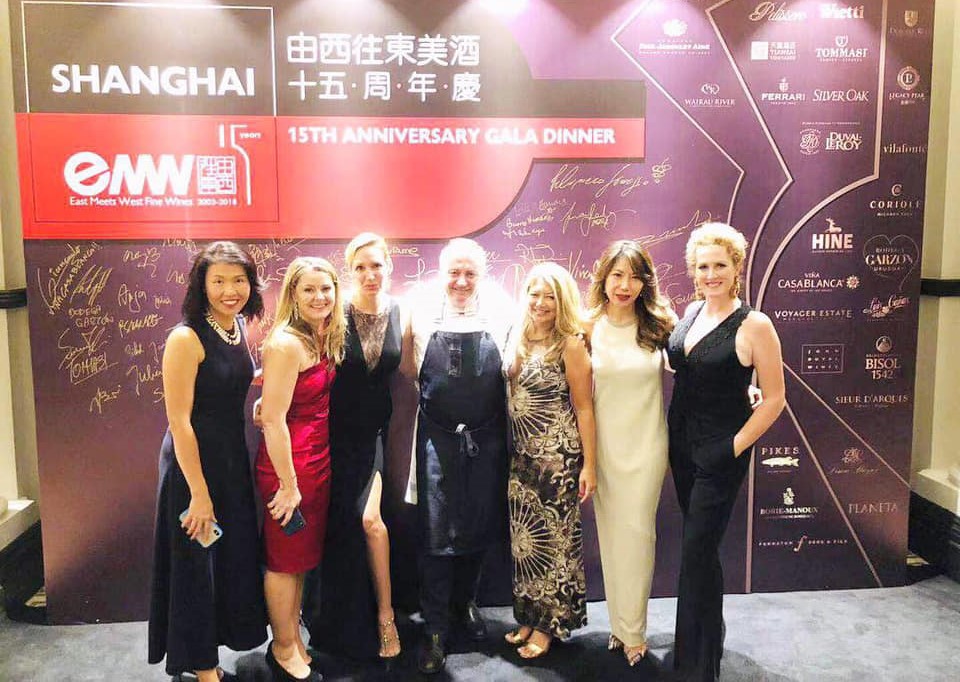
5 Who were some of the first clients of East Meets West? How did you meet them? And how did you decide what wines to represent?
Matt Sutter was the F&B manager of Grand Hyatt Shanghai, Eduardo Vargas arrived in China and opened Che in Xintiandi, Walter Zahner was the General Manager of T8, Paolo was General Manger of Va Bene in Xintiandi — they truly supported me and East meets West.
As mentioned, I was the sales manager of LVMH North China for three years, then relocated to Shanghai as the sales manager of East China for Summergate, so my relationships were built and strengthened over those years.
Our imported wines were from niche, boutique and family-owned wineries. The wine business needed a lot of capital for stock and therefore we had a very small portfolio in the very beginning. The sales were mainly on red wines back then; Champagne sales were small although I loved Champagne.
I went to the London Wine Fair, where I was fortunate to meet with Carol Duval-Leroy. She liked me as we were both female business owners and allowed me to distribute Duval-Leroy Champagne in China. I also gained a number of unique producers from the New World that were intrigued to get distribution in China.
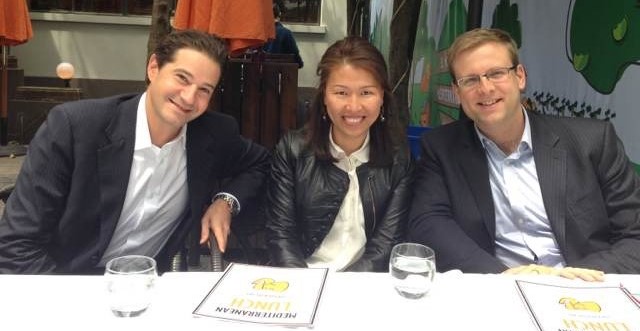
6 Edouard Duval and Gregory Bielot later came on board as partners at East Meets West. How did that happen?
East Meets West was distributing Champagne Duval-Leroy and Edouard Duval contacted me while on holiday in Shanghai. Edouard asked me many questions in regards to the wine market during our first meeting in Xintiandi. I became a bit impatient as I was not sure what he wanted from me.
He then invited me for a dinner at [restaurant] A Future Perfect, where he introduced Gregory Bielot to me. Edouard and Greg were best friends, and Greg was working for the ASC Shanghai office then.
After the dinner, Edouard called and asked me if I was looking for a business partner. Edouard and Greg explained they wanted to establish a wine business in China and to work with a Chinese partner, so they asked if I consider working with them. We then became partners in East meets West. It was a good match to push EMW to the next levels.
At that time, East meets West was a 100-percent Chinese company. The whole process of becoming a joint venture with Edouard and Greg becoming official business partners took nearly a year.
7 You left EMW in 2012. What would you say were the highest and lowest points of that nine years. And what are you most proud of in terms of your legacy?
EMW greatly benefited from China’s economic growth between 2006 to 2012. Our business expanded and we enjoyed very good success. We sealed the nationwide wine supply contract with IHG hotels and had over 100 employees by the time I left in 2012.
We encountered some problems with Shanghai customs back in 2008. As I was the legal representative, I was held responsible, which swayed my decision in the end to leave.
I am very proud that East meets West is still going strong in China. A few old colleagues from my days are still working there, including Madame Wang, Nancy Shang and Liz Li.
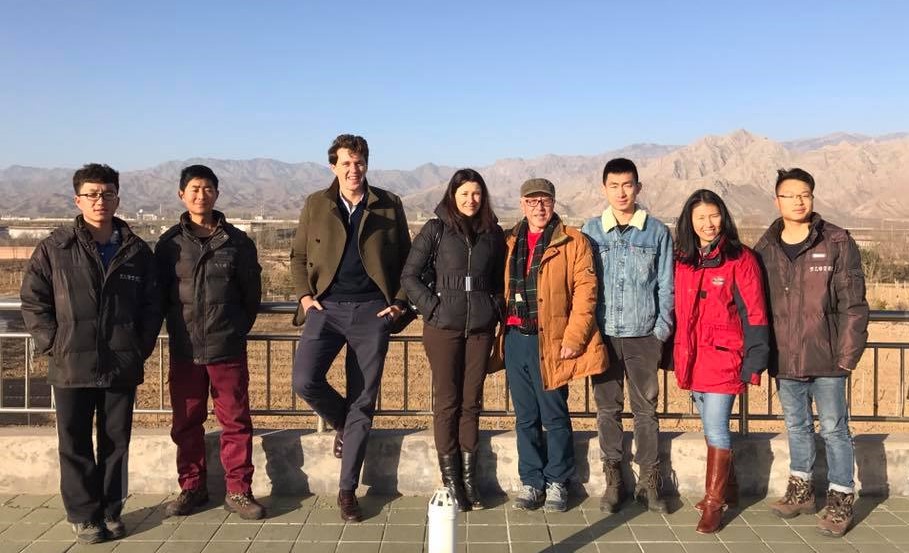
8 You are still involved in wine as a consultant on China for Decanter. Which means you now have 25 years of experience in China’s wine industry. What is your perspective on the current state of the wine scene?
Chinese wine consumers are getting a lot more mature and sensible. The wine lovers are young and their wine knowledge is impressive. However, the majority of the population still does not understand wine and price is the only point they care about.
The global economy as well as the Chinese economy are facing challenges, but the Chinese wine market is already following the trend of well-developed wine markets, where the wealthy buy well-established and top estates and the majority goes for cheap and cheerful bottles.
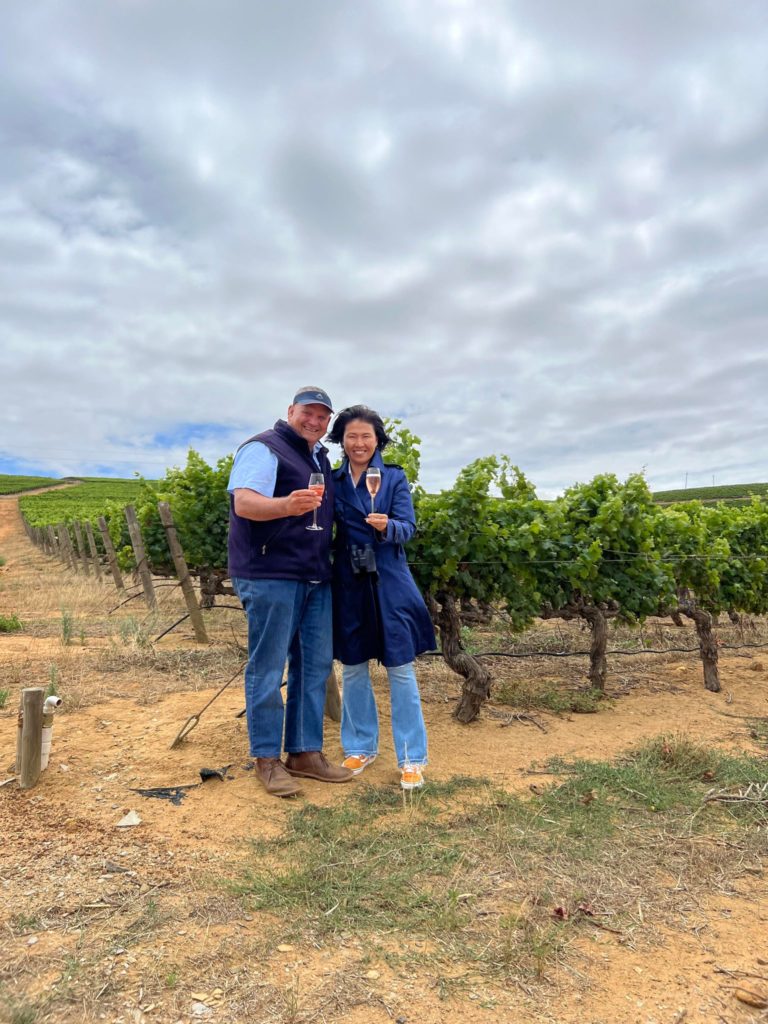
Sign up for the Grape Wall newsletter here. Follow Grape Wall on LinkedIn, Instagram, Facebook and Twitter. And see my sibling sites World Marselan Day, World Baijiu Day and Beijing Boyce. Grape Wall has no advertisers, so if you find the content useful, please help cover the costs via PayPal, WeChat or Alipay. Contact Grape Wall via grapewallofchina (at) gmail.com.
Leave a Reply
You must be logged in to post a comment.